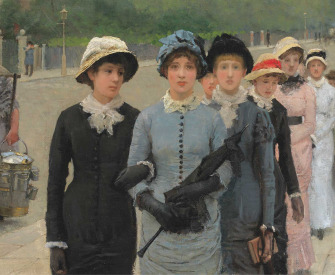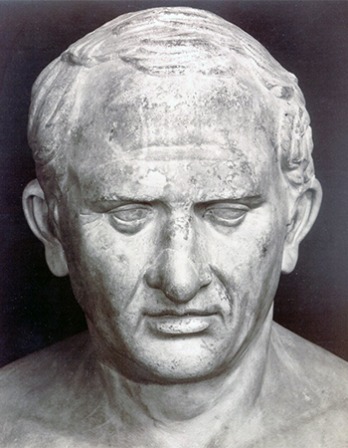Fate leads the willing and drags along those who hang back.
—Cleanthes, 250 BCLeave It All to Fate
Confucius offers some advice on patience.
Duke Zigao of She, just before he left on a mission to the state of Chi, asked Confucius, “The king has given me a most important mission to Chi. They will show me great courtesy, but they are unlikely to make much speed in the issue. Given how hard it is to push an ordinary person along, a nobleman is likely to be even more difficult. I really am worried. Perhaps you could give me some advice?”
“Under heaven there are two great principles,” replied Confucius. “The first is destiny, the other one is duty. The love of a child for its parents, this is destiny, it is there in his heart. A subject’s service of his lord, this is duty, because he must have an overlord, this is how it is in the wide world. These are known as the two great principles. To be obedient to your parents and be prepared to follow them come what may, this is true filial piety. To serve your lord happily, regardless of what he asks you to do, this is real loyalty. To serve your own soul in such a way as to prevent either joy or sorrow within, but outwardly to handle what life throws at you as inevitable and not to be worried by this, this is the perfection of virtue. Therefore, the person who finds himself in the position of a son or subject has at times to do what he has to do. Caught up in these affairs of state, he forgets his own life. He has no time to sit and contemplate the love of life or the fear of death! Therefore, my dear sir, go on your mission!
“Words are like the ebb and flow of the wind-blown seas: the purpose of them can become overwhelmed. The wind and seas are easily stirred, and what was attempted can be swamped and lost. Likewise, anger can be whipped up by cunning words and biased speeches. When anger comes, people bellow their rage like animals being driven to their death, their breath comes out in bursts of distress. Then the hearts of both sides are turned to rage. People are driven into a corner, having little idea how they got there, but they respond with brutality. They do not know how this happens, so what hope is there of stopping all this? This is why the Fa Yen, a book of rules and proverbs, says, ‘Do not wander from the original charge you are given. Do not try to force the pace of negotiation. To go beyond what is asked is to be excessive.’ To go outside what your charge was, and to try to solve everything yourself, is dangerous. It takes time to arrive at an appropriate settlement. A bad settlement, once made, cannot be changed! Therefore, take care, let your heart follow whatever happens. Accept what happens as it occurs in order to find your true place, follow the middle way. The best thing to do is leave it all to fate, even if this is not easy to do!”
©1996 by ICOREC. Used with Permission of Penguin Group Ltd.

Zhuangzi
From the Zhuangzi. The book bearing Zhuangzi’s name remains one of the most influential in the Daoist canon. Requesting that after death his body be left to nature, his disciples cautioned that birds might pick at him; he replied, “Above the ground it’s the crows and the kites who will eat me; below the ground it’s the worms and the ants. What prejudice is this, that you wish to take from the one to give to the other?




